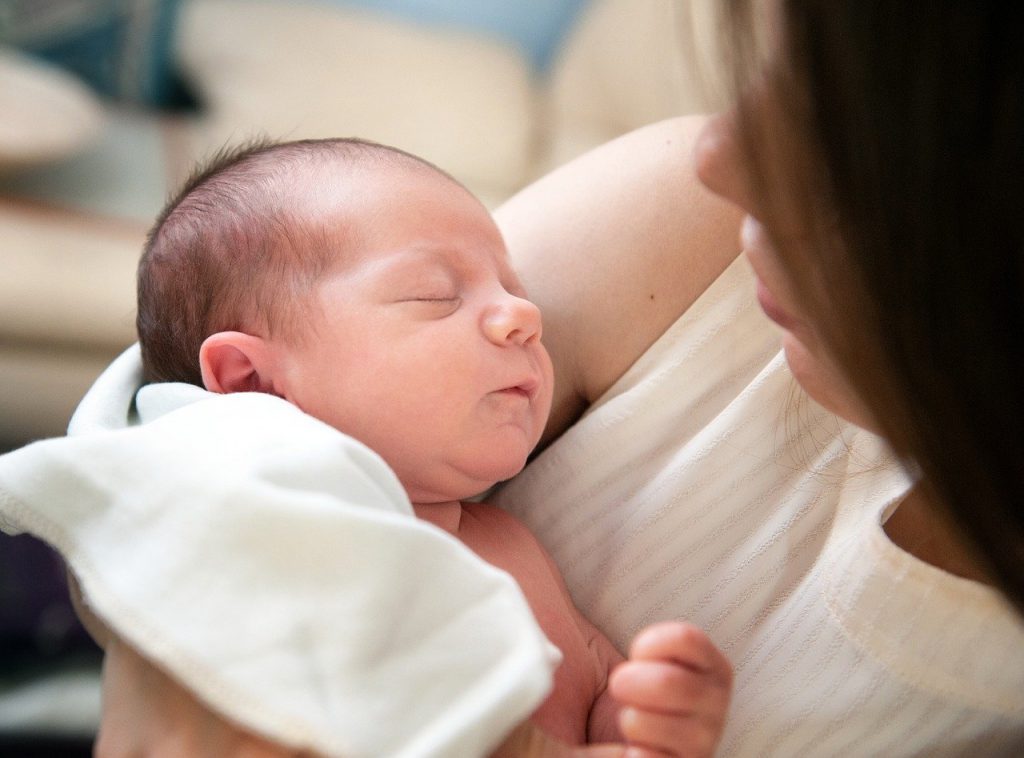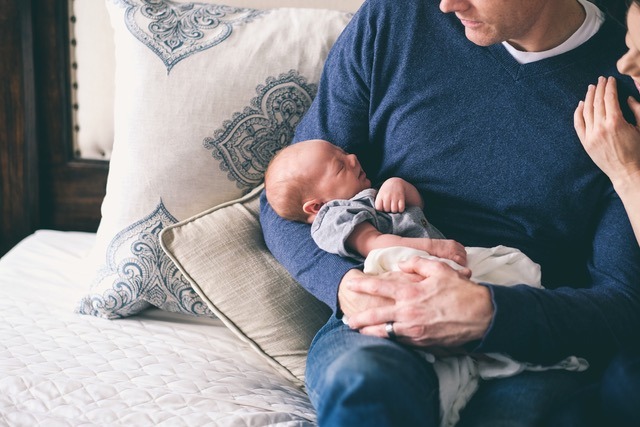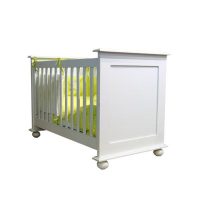A Quick Guide to Baby & Toddler Nap Time
Sadly this is not a guide on the benefits of a Sunday afternoon nap, as much as I’d love to type away giving you 101 reasons why you absolutely need a sneaky Sunday snooze (you know the one; book in hand, head back, eyes shut, mouth open – bliss!); I’ve been asked to tackle the topic of nap times for children – which, of course, is all the more important! Although I often wish I could be the one tucked up in a snuggly warm bed at midday (with my trusty tattered teddy of course), what a dream!
We know the importance of developing a healthy sleep routine for our children – but when it comes to daytime naps, do they really matter? Actually, after researching this post, I am more convinced now than ever before that, yes they do! Parents, don’t underestimate the importance of naps, both for your child and your sanity! No matter how much shut eye your kids get at night, when they’re young they still need some steady stretches of snooze time during the day.
But just how many naps should babies & toddlers have and for how long should babies & toddlers nap for? Read on for my quick guide to nap time (and my usual smattering of cool products and ideas to help);
How much Sleep should my Baby get?
According to the experts at Millpond Children’s Sleep Clinic, babies require the following amount of total sleep in a day:
1 week
- daytime: 8 hours
- night-time: 8 hours 30 minutes
4 weeks
- daytime: 6 to 7 hours
- night-time: 8 to 9 hours
3 months
- daytime: 4 to 5 hours
- night-time: 10 to 11 hours
6 months
- daytime: 3 hours
- night-time: 11 hours
9 months
- daytime: 2 hours 30 minutes
- night-time: 11 hours
12 months
- daytime: 2 hours 30 minutes
- night-time: 11 hours
How much daytime sleep does my baby need?
Babies are sleep machines! They can clock up some serious hours over a 24hour period, but just how much daytime sleep should a baby be getting?
Newborn: As we can see from the above guidelines, until the age of around 3 months, babies clock up a lot of sleep – we’re talking Guinness Book of Records figures! They can sleep up to 18 hours a day; typically only spending an hour or two awake at a time.
1 month: By the time babies reach about one month old, they are starting to spend more time awake as well as being more alert. They will usually sleep for up to fifteen hours a day, with around six hours of this during the daytime. You may begin to see a pattern of when your baby is ready for a nap, with many falling asleep during or shortly after a feed.
3 months: Because their tummies have now grown and they can eat more, some babies may begin to sleep longer during the night by 3 months old. They still sleep about fifteen hours a day, but their nap time decreases to around 4- 5 hours during the day, spread over 3 to 4 naps. They may sleep anywhere from 30 minutes to 2 hours at a stretch.
6 months: At six months, babies drop to needing about fourteen hours of sleep each day, with 3 naps totalling about 3-4 hours. Changes such as moving your baby into their own bedroom may disturb an established sleep routine a little, so don’t be alarmed if your baby is still not sleeping all the way through the night.
9 months: Nine months often brings a milestone for many parents. Babies are more likely to be regularly sleeping through the night. They still need about fourteen hours of sleep, but begin to nap less during the day. Ideally they should have 2 naps totalling 2 hours 30 minutes, one in the morning and one in the afternoon.
12 months: By the time your baby is about a year old, they will normally be sleeping around thirteen hours a day. Ideally they should still have 2 daytime naps totalling 2 hours 30 minutes, one longer one in the morning and a shorter afternoon nap. You may find that it’s getting harder to get your inquisitive little one off to sleep as they are keen to be exploring, but it’s still important to maintain daytime naps to help them, and you, rest and revive!
Over the course of the first year napping times will vary depending on factors such as feeding times and other daytime routines that you may have such as school runs or social commitments. Young babies are masters at being able to nap pretty much anywhere, so don’t feel that you must be confined to your house 24/7 for your baby to get their nap times in!
I’ve also written an article about how to get more sleep as a new parent – so please don’t feel forgotten! These early months of parenting can be exhausting so it’s vitally important that you get enough rest as well.

How much Sleep should my Toddler get?
According to the experts at Millpond Children’s Sleep Clinic, toddlers require the following amount of total sleep in a day:
18 months
- daytime: 2 hours 15 minutes
- night-time: 11 hours 15 minutes
2 years
- daytime: 1 hour 30 minutes
- night-time: 11 hours 30 minutes
3 years
- daytime: 0 to 45 minutes
- night-time: 11 hours 30 minutes to 12 hours
How much daytime sleep does my toddler need?
Toddlers are extremely active but still require daytime sleep to revive themselves and give you a breather! Toddlers should ideally have 2 naps per day; one in the morning and 1 in the afternoon, gradually reducing to 1 nap as they move towards school age.
18 months: At 18 months your toddler should have 1 nap mid/late morning and 1 small afternoon cat nap totalling 2 hours 15 minutes.
2 years: At 2 years your toddler should have 1 afternoon nap totalling 1 hours 30 minutes.
3 years: At 3 years your toddler should have 1 nap totalling 45 minutes, not too late in the afternoon as this may affect their night time sleep.
Around the time your toddler is 18 months old, you may want to start phasing out their morning nap, extending their awake time into the afternoon before they nap. A sign that your toddler may be ready to reduce to 1 nap a day is that they will take longer to fall asleep for the morning nap – or refuse to sleep altogether! Making the transition can be a little bumpy, but just be guided by your toddler, their mood and how tired they are! On some days, they still might need two naps, for instance on a day that has been especially stimulating, exciting or exhausting.
As your child gets older, the need for an afternoon nap will eventually disappear. It may be good to still encourage a little quiet or rest time during the day, just enough to recharge their batteries, ready for round two, three, four…

The Importance of Naps
Both babies and toddlers require nap times, they work together in harmony with night-time sleep, helping to develop a good sleep routine. They’re also a welcome break in the day for you to re-group and have a little rest as well.
Here comes the science! The key hormones that help regulate our sleep are melatonin and cortisol. Their levels change throughout the day and they have differing impacts on our sleep habits – ok I know I’m getting all nerdy, but this is crucial to understand when it comes to the importance of naps…
Cortisol for instance is the hormone that keeps us awake and alert and is at its highest level in the morning, gradually dropping off through the day. Without regular nap times a baby can become overtired, when a baby is overtired their brain releases more cortisol to try and keep them awake and alert. Once that hormone kicks in, it is much harder for a little one to settle down and fall into a long, restorative sleep – can you see a potential vicious cycle?
Babies can tire easily because they are processing large amounts of information and putting so much energy into growing. Regular naps help their bodies and brains to rest, develop and prepare for the next round of learning!
Toddlers are on the go, it’s no wonder they tire and get grouchy! One sign that your toddler may be due a nap is a change in their behaviour, you’ll know the signs; it could be the yawns, the rubbing of eyes, the full on melt down in the supermarket (yes we’ve all been there!). Getting a nap will not only restore your toddler to a more cheerier temperament, it will also give you a chance to enjoy a hot cup of tea and some much needed head space.
If you settle your little one off for a nap when they’re drowsy and ready to sleep then Melatonin will override the Cortisol, resulting in a restful sleep – ok science bit over!
Where should my Baby Nap
New parents may worry that they are going to be house bound for hours upon hours, day after day as their little one sleeps the day away! However newborn babies have the ability to pretty much sleep anywhere! So if you need to get out and about your baby will sleep on the go – in a car seat, pram or papoose, or snuggled in your arms as you sit and enjoy a catch up with friends (you may find that all your talk about is poo, colour of poo, consistency of poo, sheer volume of poo… after all you are a poo expert!).
Having a baby is exhausting so you may welcome being at home, and as much as every parent loves cuddles with their newborn, it can also be exhausting carrying a child all day long! Other than being cradled in your arms, where is the best place for a baby to nap?
- Newborn: When babies are very tiny, you may prefer them napping in the same room as you, or nearby. Moses baskets or prams are a great option as they can be moved from room to room without disturbing your sleeping baby, you may even decide to have a crib in your living area for your baby’s daytime naps. According to the Lullaby Trust your baby should be placed on their back to sleep and not on their front or side (unless your doctor has advised you of a medical reason to do so).
- 3 months +: By this stage you may be getting into more of a routine, with nap times falling at more regular times. Many parents still prefer to keep baby nearby during daytime naps, however by this stage it’s important to try and let you baby settle themselves to sleep, rather than them being reliant on you. Baby Rockers offer a great, safe napping spot and the gentle bounce can help soothe them off to sleep – giving your arms a rest!
- 6 months +: Now that daytime naps have reduced considerably to perhaps 2 longer sleeps, it’s important that your baby is well supported during their sleep. If they have transitioned into a cot, this will provide both a safe and comfortable environment for daytime naps and offer a quieter spot to hopefully enable your baby to get a good long nap.
Of course, no two babies are alike and every parent will have their own individual way of doing things. That said, establishing a consistent daytime sleep routine not only makes for a less cranky baby, it hopefully makes for a less grouchy parent too!

Where should my Toddler Nap?
Moving into the toddler years can present parents with a few nap challenges! If babies are masters at sleep, toddlers are masters at resistance! Snooze Control to Major Tom – how can you get back on course?! Being consistent can really help toddlers with their nap routine, so if you are at home it’s best to try and encourage them to take their nap in their bed.
By this stage many toddlers have transitioned from a cot into a toddler bed or kids single bed so getting them to stay in bed may be more tricky! You can’t force your toddler to sleep, but you can insist on some quiet time. Let your child read books or play quietly in their room, you may be surprised by how quickly quiet time can lead to sleep time!
As a parent who has survived the toddler years, I thoroughly appreciate that sometimes the battle for sleep is not always worth the fight. Some days it may just be a case of letting them sleep where they fall… this could be like a star fish on the lounge floor, snuggled on the sofa or even mid lunch in their highchair (photo opportunity for sure!)…sometimes when sleep calls they simply can’t resist!
If you’re out and about most toddlers will happily nod off in their pushchair or in their car seat, usually just as you’re pulling up outside your house, having had a journey filled with the endless “why?” from your inquisitive toddler! You’re then challenged with moving a soundly sleeping angel without waking them… or opt for sitting in your car outside your house, isn’t it funny the things we do just for a moment of peace and quiet!
Hopefully you’ve made it through this guide to napping without nodding off yourself! As we’ve seen daytime napping is both important for your child’s development and equally gives you a chance to draw breath and enjoy a bit of you time… and if you do get a chance to enjoy that Sunday afternoon snooze – good for you, you deserve it!



